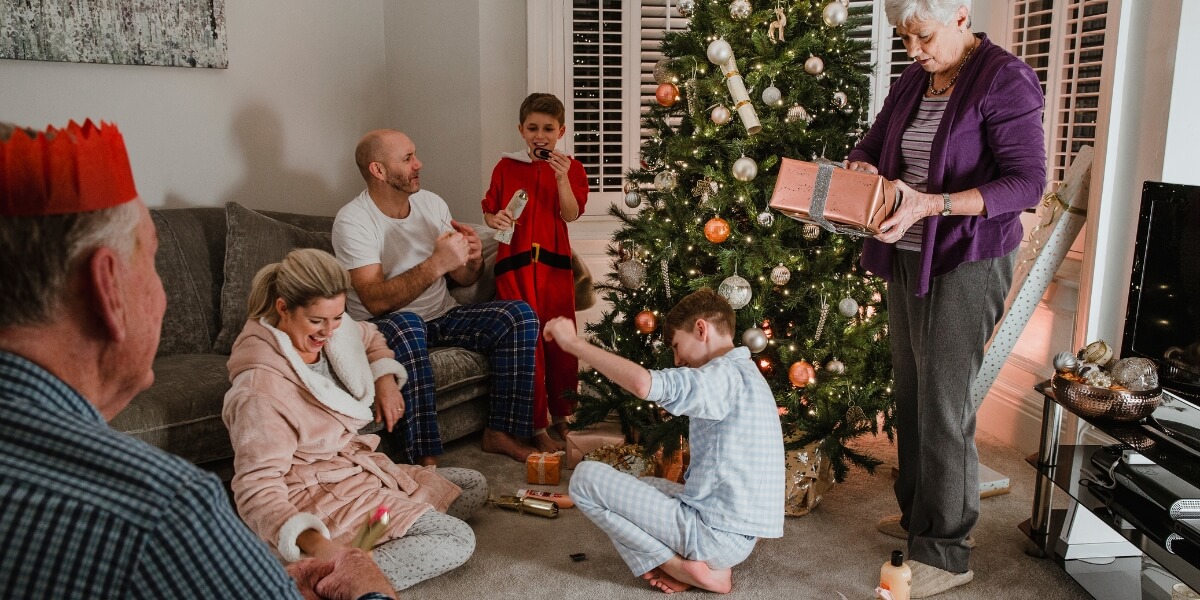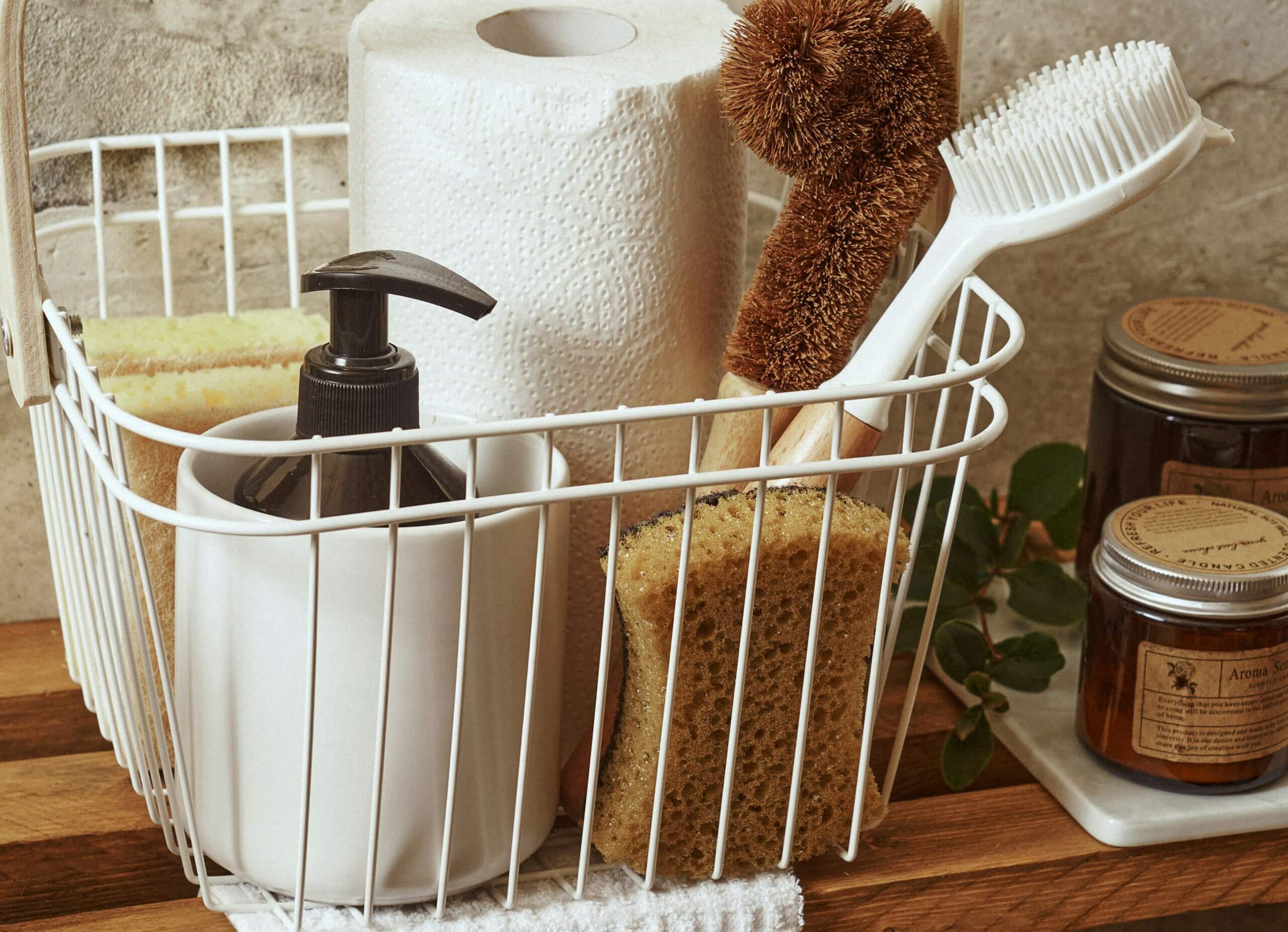REDUCE YOUR WASTE, LOWER YOUR FOOTPRINT
Where to repair your stuff in Brisbane
One way that we can all reduce our waste is by keeping our clothes, devices and products in use for longer. Repair cafés are helping people keep their products in use for longer while reducing waste and landfill and saving people money. Repair café are community groups of passionate volunteers who come together who share their skills and knowledge about repair while helping to fix broken things.
There is a growing movement of repair cafés in Brisbane, which form part of a bigger network of Repair Cafés in Australia and around the world. These repair cafés are part of our Right to Repair movement in Australia. To find out more about the international repair café movement you can visit the International Repair Café website.
Below, we explore that a repair café is, why you should care about repairing and where to find your nearest repair café in and around Brisbane.
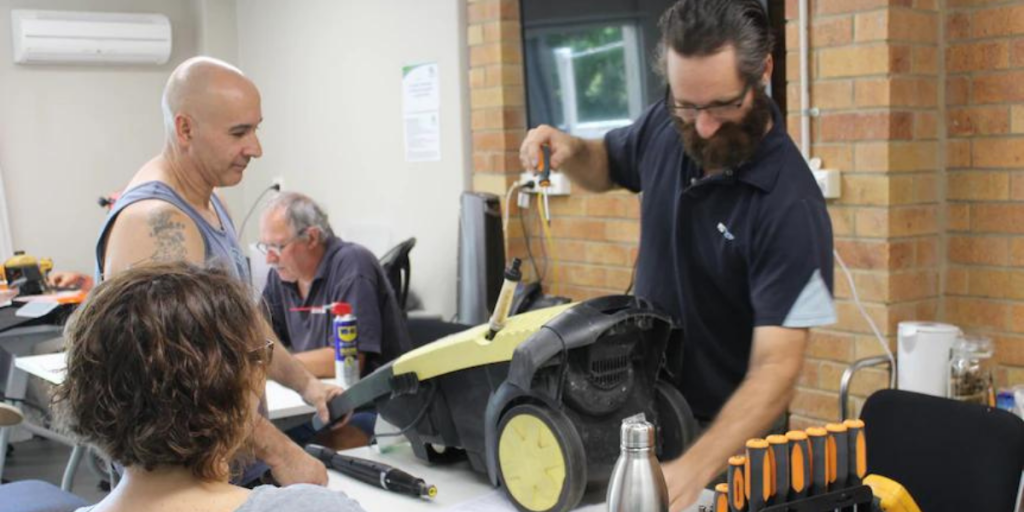
Put simply, a repair café is a place where volunteers with repair skills and knowledge give their time to repair broken items or clothing that may need fixing or mending. If you visit a repair café, which are often run over the weekend to make them more accessible, you can buy a cup of coffee or tea while you wait for your items to be fixed- hence the idea of repair ‘café’. You may also learn a thing or two about how to care for and maintain and maybe even learn some tips about repairing or mending your items yourself. Repair café offer a range of repair skills and services eg clothing, furniture, electrical and mechanical items etc.
Most repair cafés in Brisbane can be found through their Facebook site and some offer a booking system to book in your items for repair online so they can match you with a repairer who as the skill set to repair your item.
While the process can change from repair café to repair café, your experience will generally follow the steps:
- Find a repair café near you. Repair Cafés often operate on a monthly or bi-monthly basis and their location and times of operating can be found on the Australian Repair Network site or you can check out the list below.
- Check out if the repair café takes booking online. They may want to know your broken item is and how it is broken (some may request a photo). You can only bring in items that you can carry to the repair café.
- The repair cafés operate at different times and days and in different places so best to check which one is closest or most convenient to you. They will identify what may need to be done and if they have volunteers who can repair your item, then they wills schedule a time for you to meet with their volunteer. If you need a replacement part, you will need to bring that along as repair cafés are not able to keep a stock of spare parts etc.
- Enjoy the friendly atmosphere of the repair café – it is a wonderful way to connect with your local community. One day you may even want to volunteer your time to help out at the repair café. Volunteers are always welcomed and repair café need people to help with a whole range of activities, including repair.
- Hopefully your item will be able to be fixed, so when you leave you can share the good word about the repair café with your family and friends.
Remember, being a free volunteer run service, repair cafés may not always have the right repair skills or capacity to fix all of the items you need fixing. However, it is worth going along to visit your repair café to see as they can share information about how to look after your products and how to properly dispose of products if they cannot be repaired. If the repair cafés can’t fix your item, try supporting local businesses and go to a repair and restoration service, which can often still be cheaper than buying new.
Repair cafés in Brisbane and surrounds:
Check out the below list to see if there’s a repair café near you.
When: Last Saturday of the month, 9am to 12:30 pm, no booking required
Contact: [email protected], 0450 062 543.
Facebook: caloundraRepairCafe
When: Every 2nd Saturday of the month, 2pm to 4pm, bookings preferred, walk-ins welcome
Contact: [email protected], 0474 095 560
Facebook: Repair-Café-Brisbane-Bayside
When: 4th Saturday each month, booking required
Contact: [email protected], 0428 439 001
When: Every 1st Saturday of the month, 8:30am-11:30am, bookings required
Contact: [email protected], (07) 3284 3081
Facebook: repaircaferp
When: Second Saturday of each month, from 9:00 AM to 12:30 PM (excluding January)
Contact: [email protected]
Facebook: repaircafesandgate
Instagram: repaircafe_sandgate
When: Every 3rd Saturday of the month, 10:00am to 1:00pm, bookings preferred.
Contact: [email protected]
To make a booking: https://www.trybooking.com/eventlist/repaircafethegap?embed
Facebook: RepairCafeTheGap
Instagram: repaircafethegap
When: Every 2nd & 4th Thursday of the month, 9am-2pm
Contact: [email protected]
Facebook: groups/malenyfixitcafe
When: 2nd Saturday, every other month, 10am-1pm, bookings required
Contact: [email protected]
Facebook: RepairCafeWoolloongabba
When: Varies, bookings required.
Contact: [email protected]
Facebook: Repair Café UQ EWB
Instagram: ewb_uq
When: Varies, bookings required.
Contact: [email protected]
Facebook: Stafford Repair Cafés
When: Various, bookings required.
Contact: [email protected]
Instagram: griffithrepaircafe
Website: https://www.griffith.edu.au/law-futures-centre/our-research/australian-repair-network/repair-cafe
When: Every Wednesday and Friday, 9am to 12.30pm, bookings preferred, walk in’s welcome.
Contact: [email protected], (07) 5545 4968
Facebook: Tamborine Mountain Repair Café
When: Saturdays, 8.30am to 11.30am. Bookings required.
Contact: [email protected], toollibrary.org.au
Facebook: gctoollibrary
When: 1st Saturday of the month,1pm to 4pm.
Contact: [email protected], (07) 3287 2840
Facebook: repaircafebeenleigh
Why repair?
Nowadays, many products are design and built in a way that make them difficult to repair. Some are even deliberately designed to break down after a certain timeframe, forcing consumers to replace their products with the latest model (this is called planned obsolescence). Often, small issues or malfunctions within a complex product can make the whole thing unusable, even though one piece can be easily fixed or replaced.
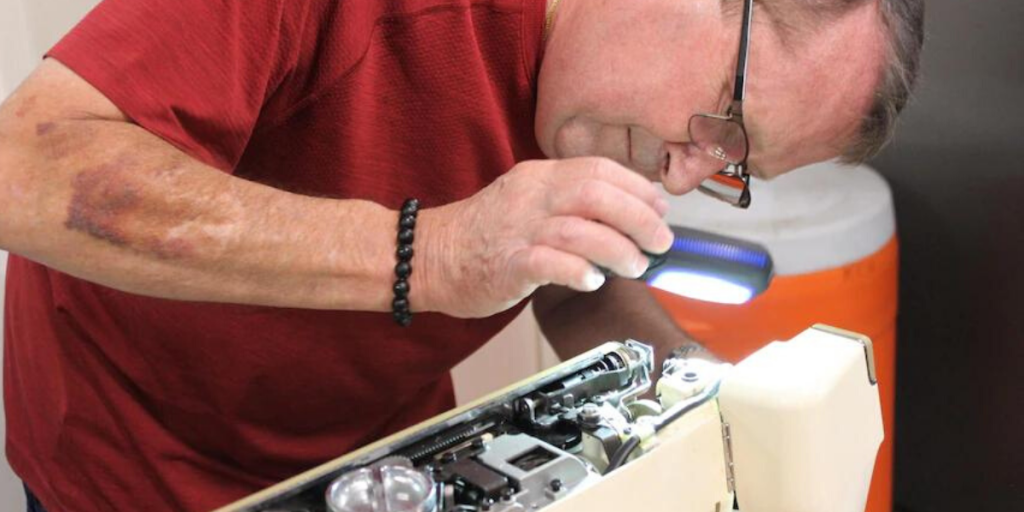
By repairing your products when they are damaged, instead of throwing them away and buy new ones, you are extending their life. Not only does this save you money (as you don’t have to buy a new product) but it lowers CO2 emissions as most product manufacturing and transport is energy and fuel intensive, emitting greenhouse gases into the environment. It also reduced the amount of waste going into landfill – which is very important as cities are growing rapidly and landfill must be reduced.
Repair is an important step in the transition to a circular economy. In short, the circular economy is a way for society to achieve a sustainable future by designing out waste and pollution, extending life and value of products (and the materials that they are made of) in our economy and doing so in a way that regenerates our natural systems. The below graphic from the U.S. Chamber of Commerce nicely shows how the lifetime of products can be extended through a circular economy:
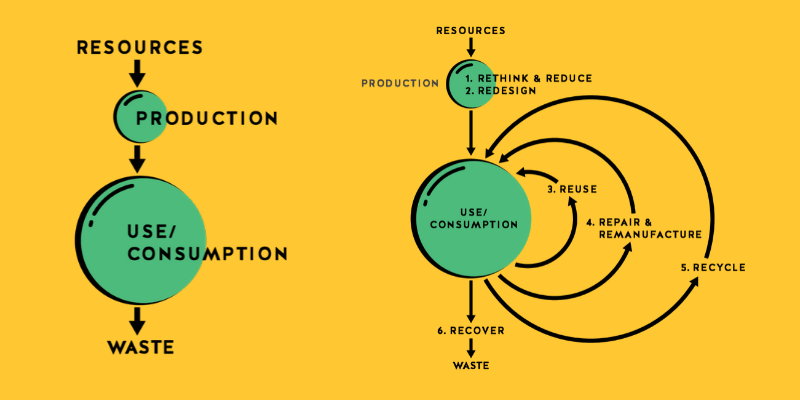
Repair cafés are part of a global movement to give consumers and businesses the legal ‘right to repair’. Increasing the awareness and understanding of repairing will help our communities move away from a linear society – one that takes, makes and wastes – to a circular economy – which focusses on keeping materials, products and resources circulating throughout the economy for longer, which is better for our environment and better for households and businesses and for the broader economy. Learn more about why we really need to be able to fix our stuff or visit the Australian Repair Network, spearheaded here in Brisbane by Griffith University.
If you would like to learn more about repair café, or see a map of all the Australian locations, visit the Australian Repair Network website.


